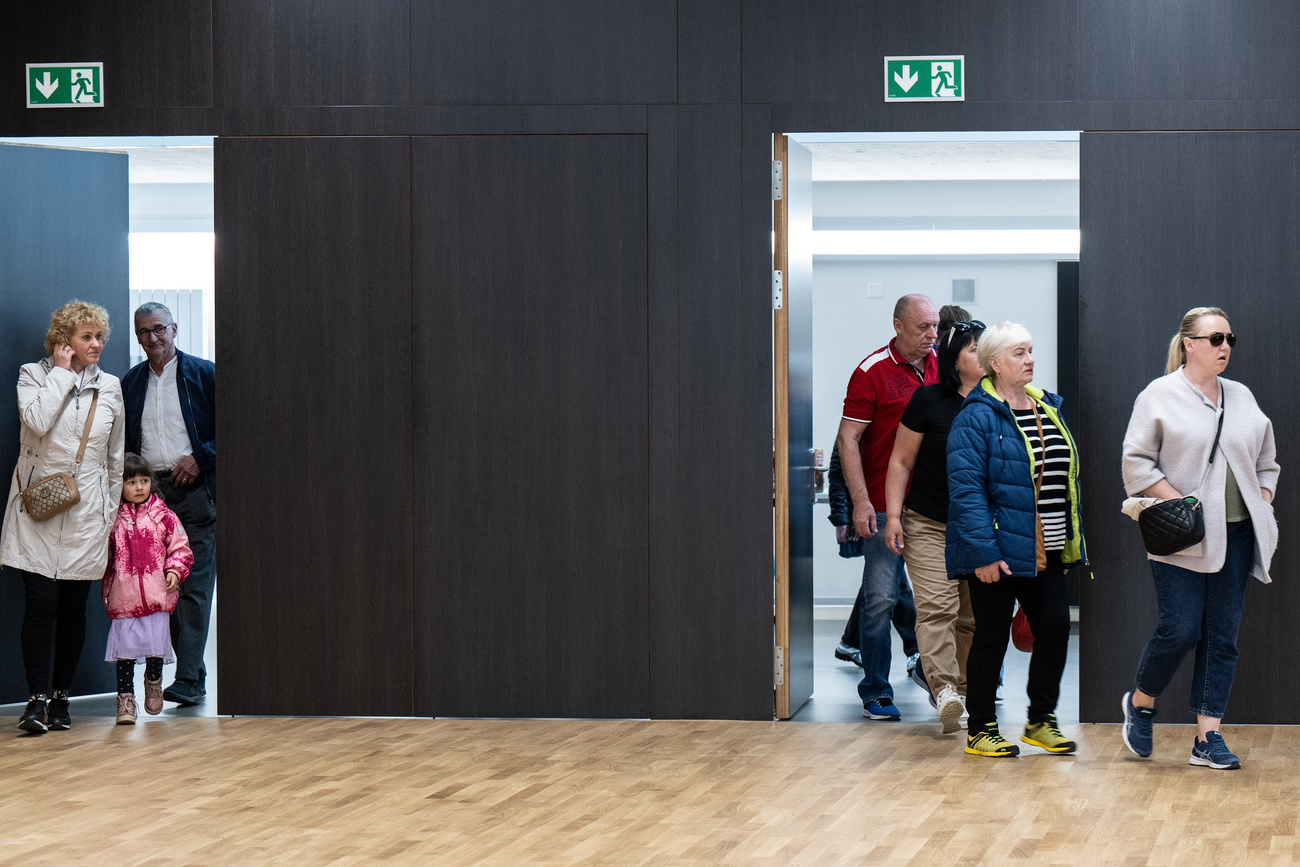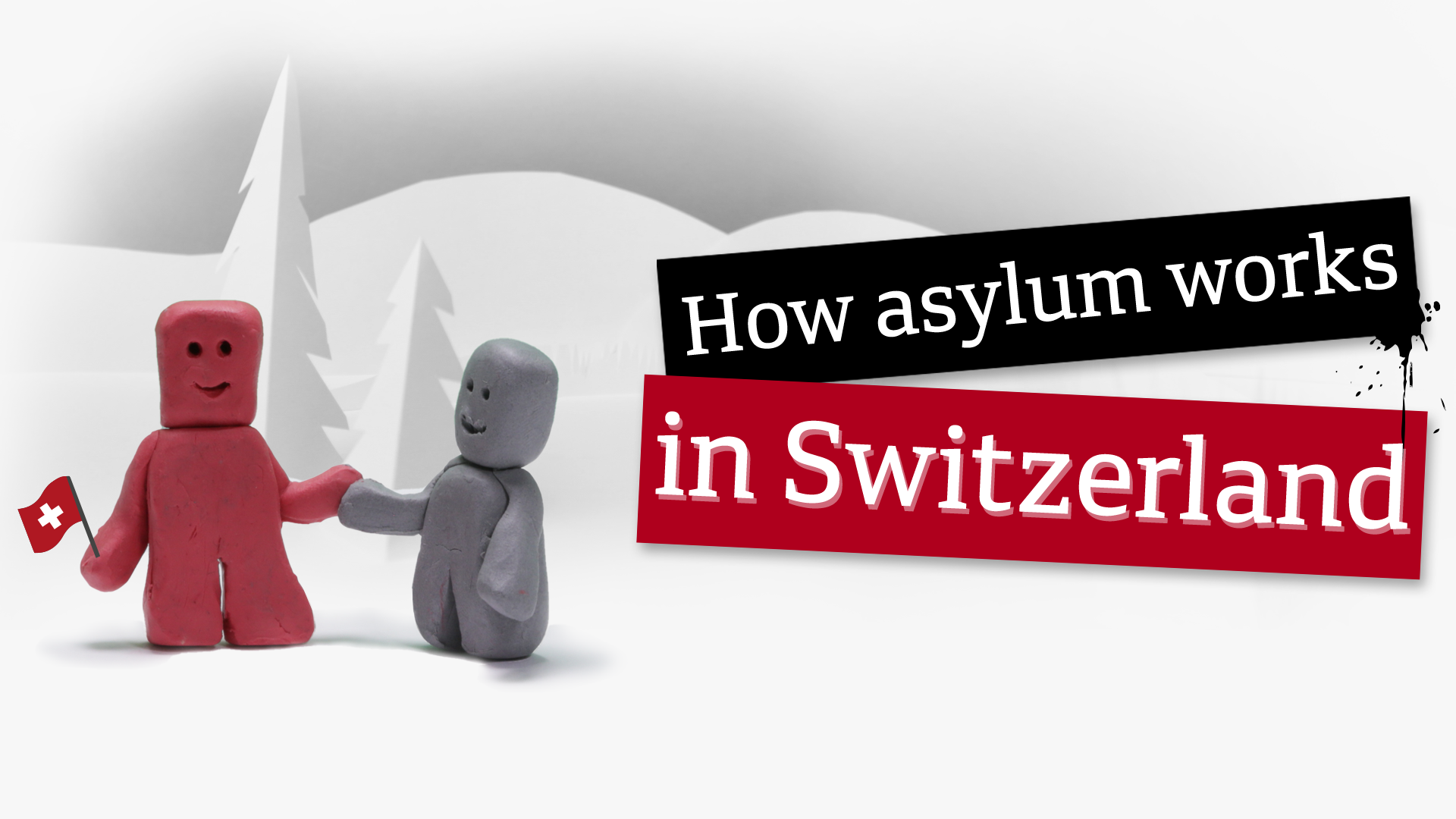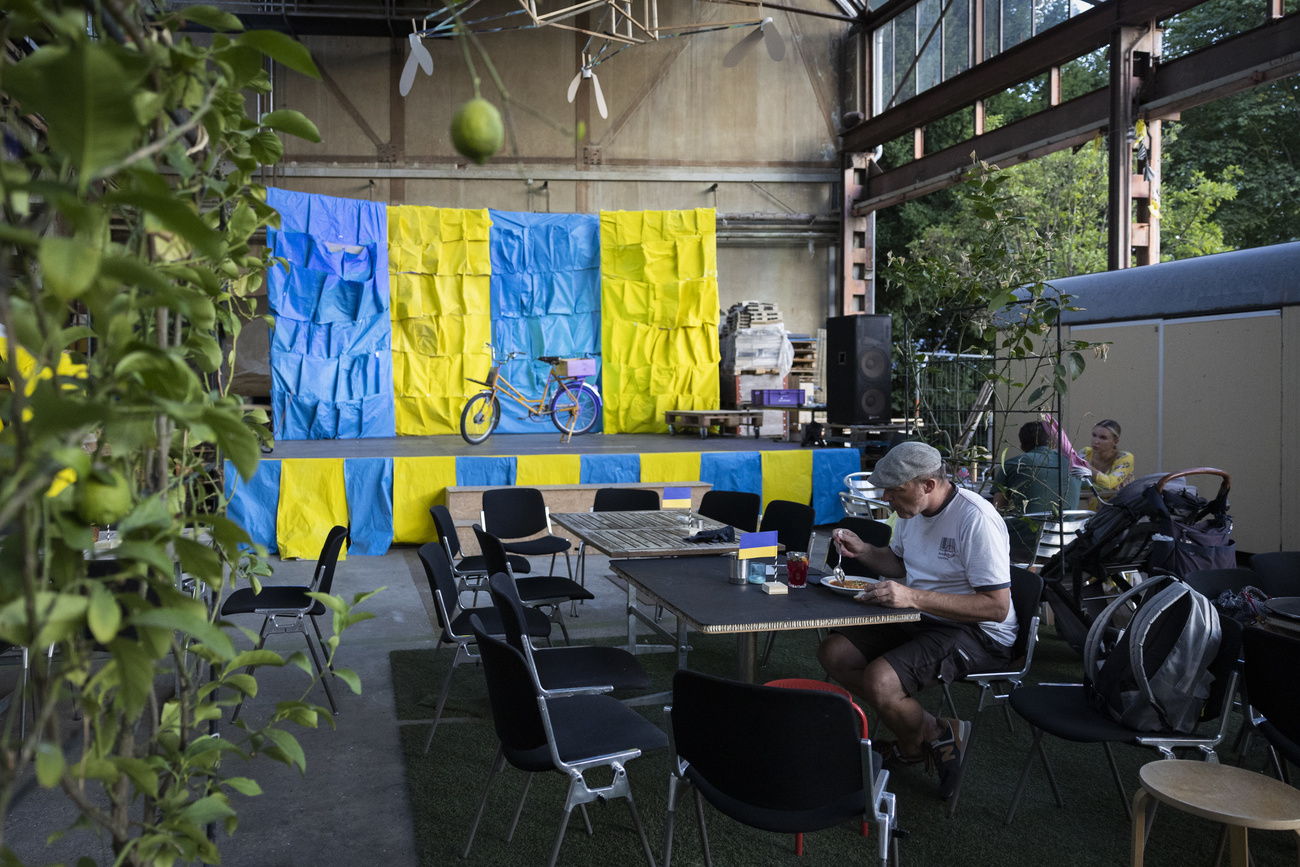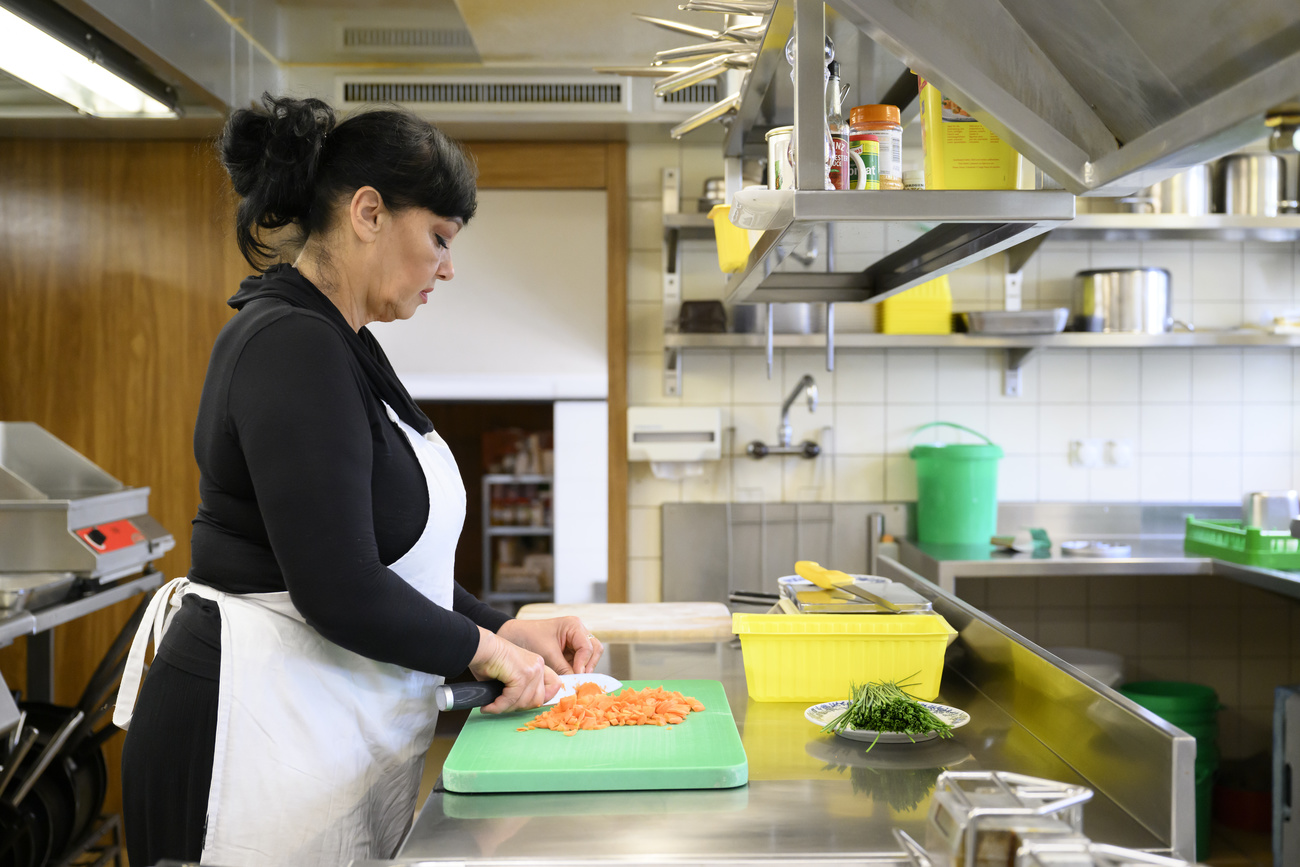
Ukrainian refugees want more work in Switzerland

Ukrainian refugees who have fled to Switzerland are keen to work, have a good level of English and almost three-quarters have a tertiary education qualification, a survey shows.
Over 70,000 people have fled to Switzerland from Ukraine and applied for “S protection” refugee status since February 2022.
An online survey of 2,000 refugees publishedExternal link on Monday shows that many of them are keen to work and are actively looking for employment in Switzerland.
The study carried out in September and October 2022 found that 36% of respondents said they were actively looking for a job and the same percentage said they were keen to work. In all, 27% said they had taken part in an employment programme or completed a training course and 15% said they worked in Switzerland. Of those who were employed – three-quarters said they would like to work more.

More
How the Swiss asylum system works
Those gainfully employed worked on average 70% of the week – 46% worked full time; 98% had an employment contract and 2% were self-employed. And those working 70% of the week earned an average monthly salary of CHF4,477 ($4,880).
The survey also showed that 40% of the Ukrainian refugees surveyed have a good knowledge of English and 70% have completed tertiary education.
Rapid admission
The online study was carried out by the Bern University of Applied Sciences (BFH), commissioned by the State Secretariat for Migration (SEM), among Ukrainians aged 16 to 59 with S protection status. In all, 8,000 people were contacted; the results were based on the answers of 2,000 people.

More
More than 70,000 Ukrainian refugees flee to Switzerland
The government developed S protection status in the mid-1990s in response to the Balkan wars. The mechanism is intended to enable the rapid admission of a group of refugees, who are thus freed from long asylum procedures, including individual examinations of why they fled their country.
Since February 24, more than 7.9 million UkrainiansExternal link have fled their country for safety across Europe. This represents the largest European refugee crisis since the end of the Second World War. In Europe, 4.9 million people from Ukraine have applied for official refugee protection status.

More
Red tape frustrates efforts to hire Ukrainian refugees

In compliance with the JTI standards
More: SWI swissinfo.ch certified by the Journalism Trust Initiative





























You can find an overview of ongoing debates with our journalists here . Please join us!
If you want to start a conversation about a topic raised in this article or want to report factual errors, email us at english@swissinfo.ch.